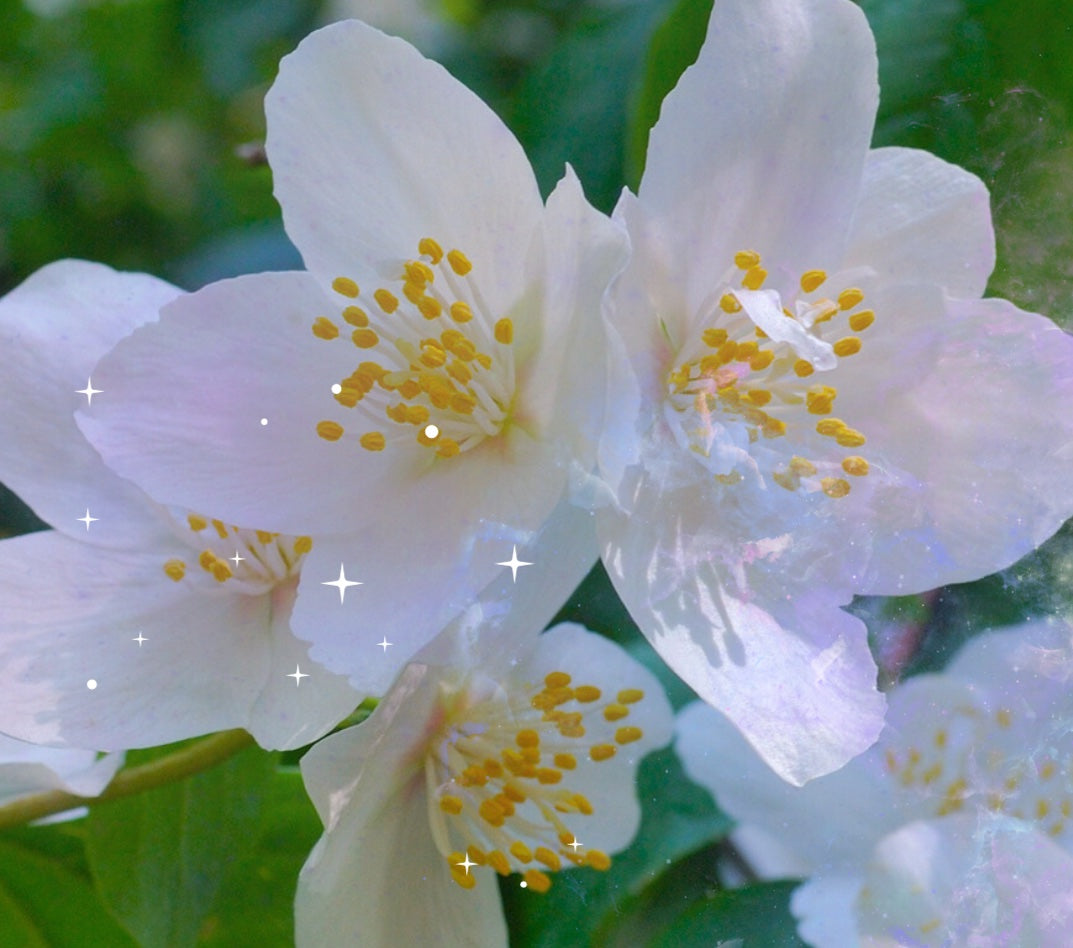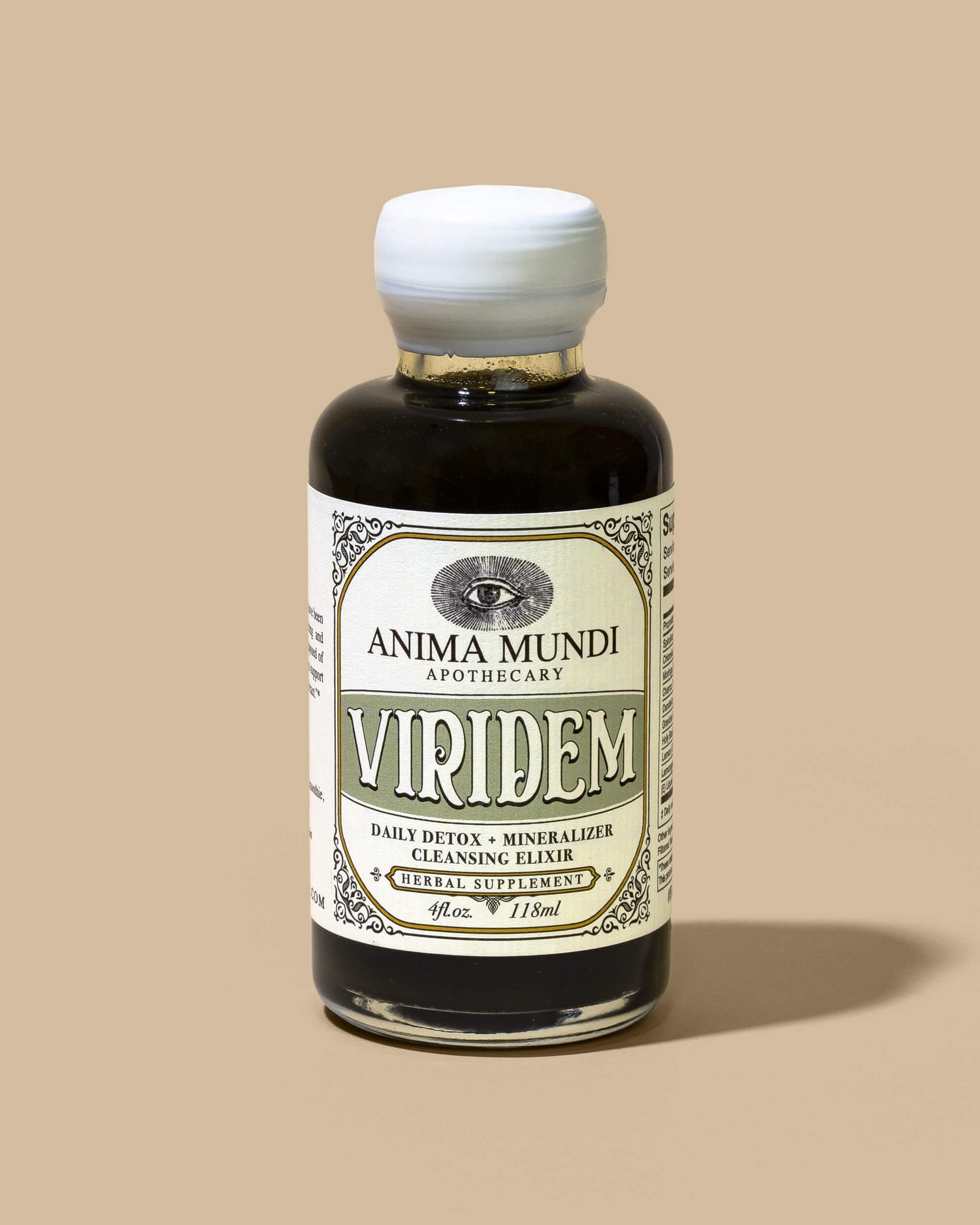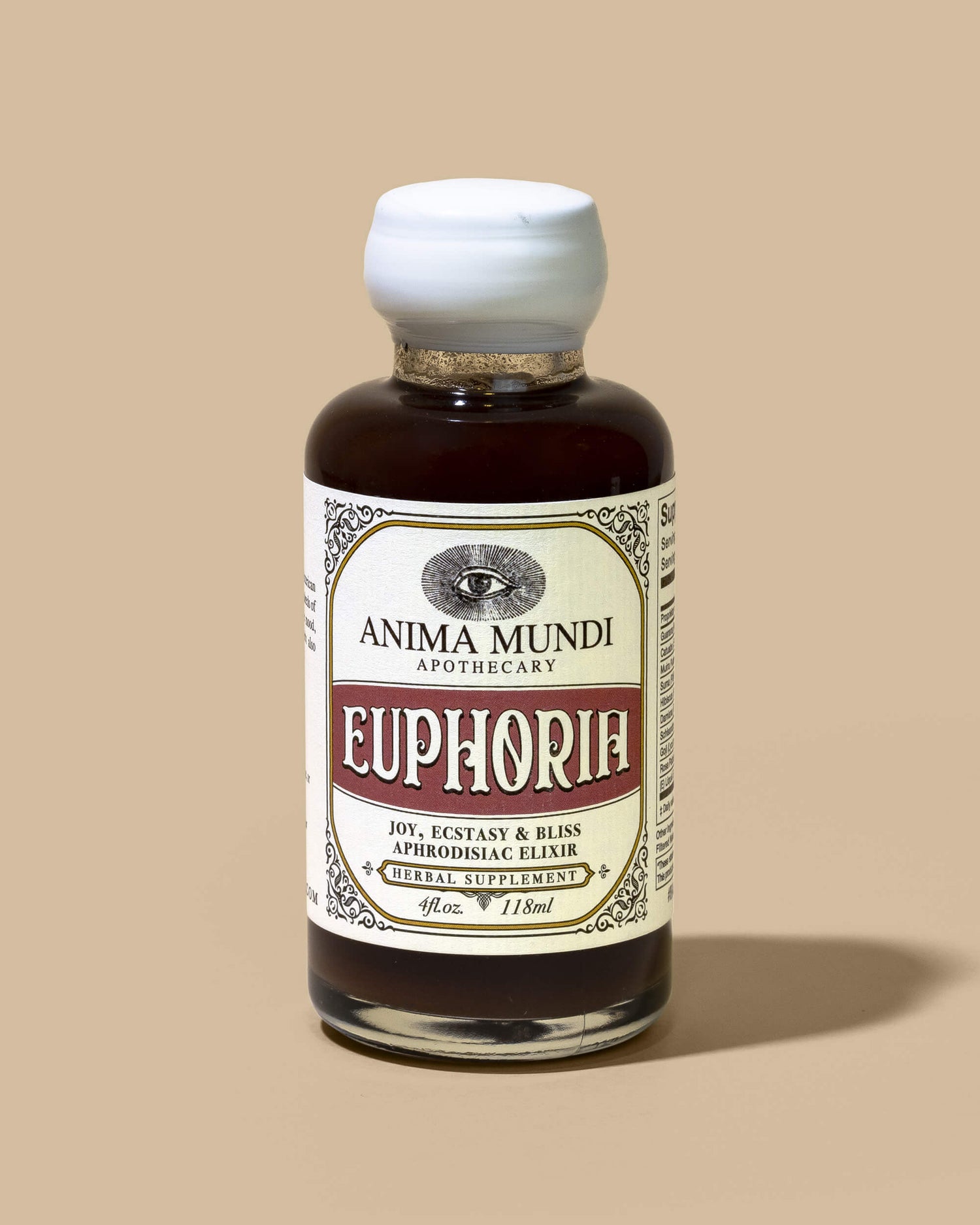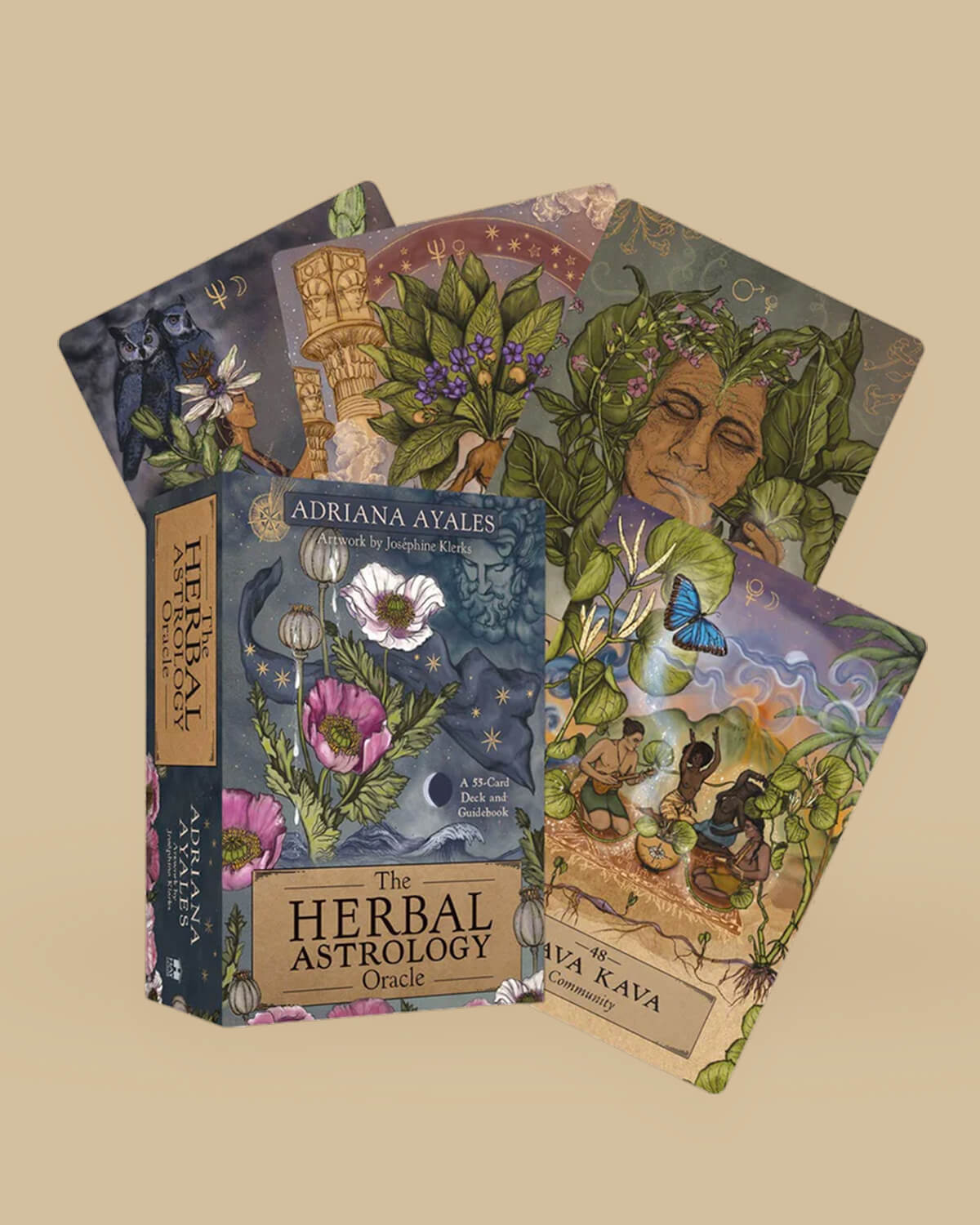How I Remember Jasmine
In Madurai’s sultry morning light, weathered hands gently pluck millions of tiny white stars as smoky diesel trucks on decrepit Indian highways haul the bags of fragrant treasures to waiting bazaars Countless luscious garlands of woven by nimble fingers lie piled among the shouting and haggling of flower markets. These are garlands of joy worn at weddings and festivities, garlands of thanksgiving offered to deities in their temples, garlands of desire hung over lovers’ beds, garlands of beauty worn in the hair of equally beautiful women, garlands inflaming erotic passions in the intoxicating night air. These are garlands that bring smiles and laughter; these are garlands of euphoric pleasures without reason. This is Jasmine, the “night queen”.
Introducing the ‘Night Queen’
Jasmine oil is one of the most expensive of all floral oils—over eight million blossoms are required to produce one kilo of essence. Each blossom must be carefully harvested by hand so as not to bruise the flower, which would produce unpleasant fragrance notes in the finished oil. The distillation or solvent extraction process must begin shortly after picking the blossoms to preserve the fragile volatile molecules that will otherwise be lost.
France was once the epicenter of jasmine cultivation and distillation, but the flower has now moved to Egypt, India, Morocco, and South Africa. In India, organic and ecological cultivation of jasmine is being revived using traditional methods, which are often based in Vedic agricultural wisdom; these methods enhance the richness and beauty of the flower's aroma.
Today, there are over 300 species of jasmine growing in the warm and humid regions of the world, with several of them known for their medicinal and cosmetic properties. Therapeutic uses of jasmine have been documented since antiquity, especially in the Persian, Indian and Chinese empires. Out of the numerous jasmine species, Jasmine sambac (night blooming jasmine) and Jasmine grandiflorum (dawn blooming jasmine) are the main sources for essential oils. Jasmine sambac flowers are nocturnal, opening and releasing their sweet exotic scent during the night.
 Therapeutic Actions + Benefits
Therapeutic Actions + Benefits
Jasmine oil is highly rich in monoterpenes, sesquiterpenes, and esters. It has an affinity for the female endocrine and reproductive systems, where it is used as a galactagogue, to increase milk production and encourage flow in nursing mothers. Jasmine is also a powerful aphrodisiac, with effects on all genders; it works by both stimulating the nervous system and by enhancing peripheral circulation. In the nervous system, the aroma of jasmine has a dual action: it has both relaxant, calming, and sedative properties that are helpful in relieving stress and anxiety and promoting deep restful sleep, while simultaneously increasing mental clarity and alertness. For many people it improves both the quality of sleep and reduces the amount needed.
Jasmine Oil for the Endocrine and Reproductive Systems
Jasmine oil in perfumery and aromatherapy is famous for its euphoria inducing and aphrodisiac effects, which enhance romantic moods and increase libido. It has a pronounced effect on the female hormonal system, helping to regulate the menstrual cycle, reduce the discomforts of PMS and menopause, and as a galactagogue that increases milk production for nursing mothers.
Jasmine Oil for the Skin
Jasmine oil is mild on the skin and highly compatible with all skin types. It is used extensively in skin care products, especially in Ayurveda, and is effective in alleviating numerous skin conditions. It has antioxidant and anti-aging properties, helps rejuvenate prematurely aging skin, supports overall skin health, reduces stretch marks, and helps in the treatment of broken capillaries and varicose veins.
Jasmine Oil for the Muscles and Joints
Jasmine oil is an excellent addition to medicated herbal oils used for self-massage and treatment of musculoskeletal pain and inflammation. Mixed in a carrier oil such as the Ayurvedic Mahanarayan Oil, it relieves muscular and joint pains, aids in rheumatism, neuralgias, carpal tunnel, and restless leg syndrome.
Jasmine Oil for the Nervous System and Emotional Well-Being
Used in aromatherapy, jasmine oil is mentally uplifting and emotionally calming and soothing. It reduces stress, anxiety and nervousness, and helps with sleeping disorders and insomnia. Jasmine oil has pronounced mood-elevating powers that are especially beneficial for postpartum depression. It uplifts the spirit, boosts self-confidence, stimulates the mind, and enhances alertness.
Add this aromatic treasure to perfumes and massage oil blends to replace feelings of fear, sadness and gloom with optimism and positive emotions. Even though the jasmine flowers are delicate, its oil has the power to bring euphoria and enhance peaceful and romantic moods.
Studies on the effects of inhaling jasmine oil fragrance have found that the flower produces a stimulating effect on the mind, and significantly increases mental alertness. Other studies found that this stimulating effect of jasmine oil reduces the need for sleep.
Jasmine for Sensuality
“No jasmine, no perfume” is an old saying, indicating the great importance of the flower to the perfumers and their industry. Jasmine, with her mysterious sultry aroma that befuddles the rational mind with aphrodisiac impulses, is the foremost of all perfumes best known for her seductive allure.
Jasmine in Ayurveda
Ayurveda describes jasmine oil as sweet, cooling, and tridoshic, meaning it benefits all body types. When used therapeutically, such as during marma point therapy, the oil is said to be nourishing to the tissues, rejuvenating to the Ojas (nutritional essence) and strengthening to the nervous system.
In aromatherapy jasmine oil reduces Vata dosha, slowing and relaxing the anxious, overstimulated and upset mind and supporting emotional peace. It is an antidote to excess Pitta dosha, decreasing different manifestations of excess heat in the body. Jasmine oil is used extensively in Ayurvedic skincare products for supporting healthy skin, and in hair oils for the treatment of dandruff and promoting hair growth. Jasmine flowers are also used in herbal formulas for oral health, for treating infections, and for antimicrobial purposes.

How To Use Jasmine Essential Oil
Aromatic Profile and Safety
The fragrance of night blooming jasmine oil is rich, deep and sultry, with pronounced sweet, heavy and exotic fruit notes. It blends well with other floral oils such as chamomile, geranium and lavender, spice oils like ginger, earthy oils like vetiver, and citrus oils such as orange, mandarin and lemongrass. It has low dermotoxic potential on the skin, but like all essential oils, and especially solvent extracted absolutes, it should not be ingested internally.
How to Use Anima Mundi’s Jasmine Oil
Jasmine oil can be used as a single note perfume, in a perfume blend, in a diffuser blend, in the bath, and in massage and body oils.
Because of its potency and long-lasting fragrance, one drop of the undiluted oil placed daily on the heart, the neck and/or the wrists, is all it takes to consistently benefit from its powers.
Add 1-2 drops to the bathwater for a relaxing, sensual, and romantic experience.
Add 2-3 drops in ½ oz carrier oil or a skin lotion; this can be massaged into stretch marks, and for aromatherapy to avoid postpartum depression.
Use a couple of drops to massage into sore muscles, bruises and joints to reduce inflammation, alleviate pain, and support the healing process of the musculoskeletal system.
Diffuse jasmine or inhale directly from a bottle or a drop on the palms to soothe the nerves, reduce stress and anxiety, and enhance romantic moods.
To balance and calm intense emotions, blend 2 drops jasmine oil, 8 drops bergamot oil, and 4 drops clary sage oil; use the blend in a diffuser or dilute in a carrier oil for massage.
To enhance romantic moods, blend 4 drops jasmine oil, 4 drops sandalwood oil, 2 drops rose oil and 2 drops cardamom oil; use the blend as a perfume, in a diffuser or add 2-3 drops to a bath. Alternately, add the blend to 15 ml (½ oz) of an unscented carrier oil such as marula, coconut or almond, and use as a body oil.
Closing Thoughts: Stories + Sustainability
One of my aromatherapy mentors shared a fascinating story about the effects of jasmine fragrance with me during a recent trip to India:
“The night blooming jasmine has a very unique effect on the human mind,” he commented. “It makes people very energetic and joyful. I have witnessed professional perfumers playing in piles of jasmine flowers spread out for processing. Normally these men are very serious, but this fragrance made everyone so happy that they were acting like children. We gave another group fresh jasmine flowers to keep in their rooms overnight; the next morning everyone's face was happy and relaxed, and they told me that they had unusually pleasant sleep with sweet dreams.”
Increased mental energy, reduced need for sleep, erotic attraction, romantic happiness, pleasant dreams, joy—these are the ways we can remember jasmine's blessings. These are the reasons people in India plant jasmine around their homes, enjoying the relaxing benefits after working hard during the day. It is also why my teacher said so simply yet profoundly: “I have come to clearly understand that because of their unique fragrances, flowers such as these can make everyone happy. It does not matter where they are from.”
We know it’s important to you that each product leaves positive footprints behind on its journey to you. It means the world to us, too. The essential oils Anima Mundi shares with you today come from a variety of ecological sources throughout the world. Each source holds an inspiring story—of hardworking communities, organic agriculture, sustainable agroforestry, economic upliftment, grassroots healthcare, and the preservation of ethnobotanical culture. Produced in geographically and ecologically diverse regions, our selection of Indian oils ranges from luscious florals from the tropics to high altitude lavender from the Himalayas, and more.
These Indian aromatic treasures are exotic perfumes with exalted histories. We are thrilled to now offer a diverse palette of intoxicating botanical attars from India that are pure, wild-harvested, and ethically sourced. Many of our Indian oils also represent protection of threatened and endangered species as well as preservation of unique ecosystems. These oils offer the opportunity to continue long traditions of agrarian culture that are increasingly being lost to modernization.
For more stories from our distillers and sources throughout the world, visit our Eco Projects page or browse our full essential oil collection for detailed information about each individual offering.
by David Crow, L.Ac.
A renowned plant medicine pioneer, acupuncturist, Ayurvedic practitioner and aromatherapy expert, David has been a clinician, consultant, researcher, and educator for over 30 years. He has traveled extensively to study traditional medicinal systems and is the author of four books, including Plants That Heal, In Search of the Medicine Buddha, and Sacred Smoke. The co-founder and former owner of Floracopeia, David now offers consultations and serves as the Chief Aromatic Officer of Anima Mundi Herbals. Learn more about David’s work and personalized offerings here.

















